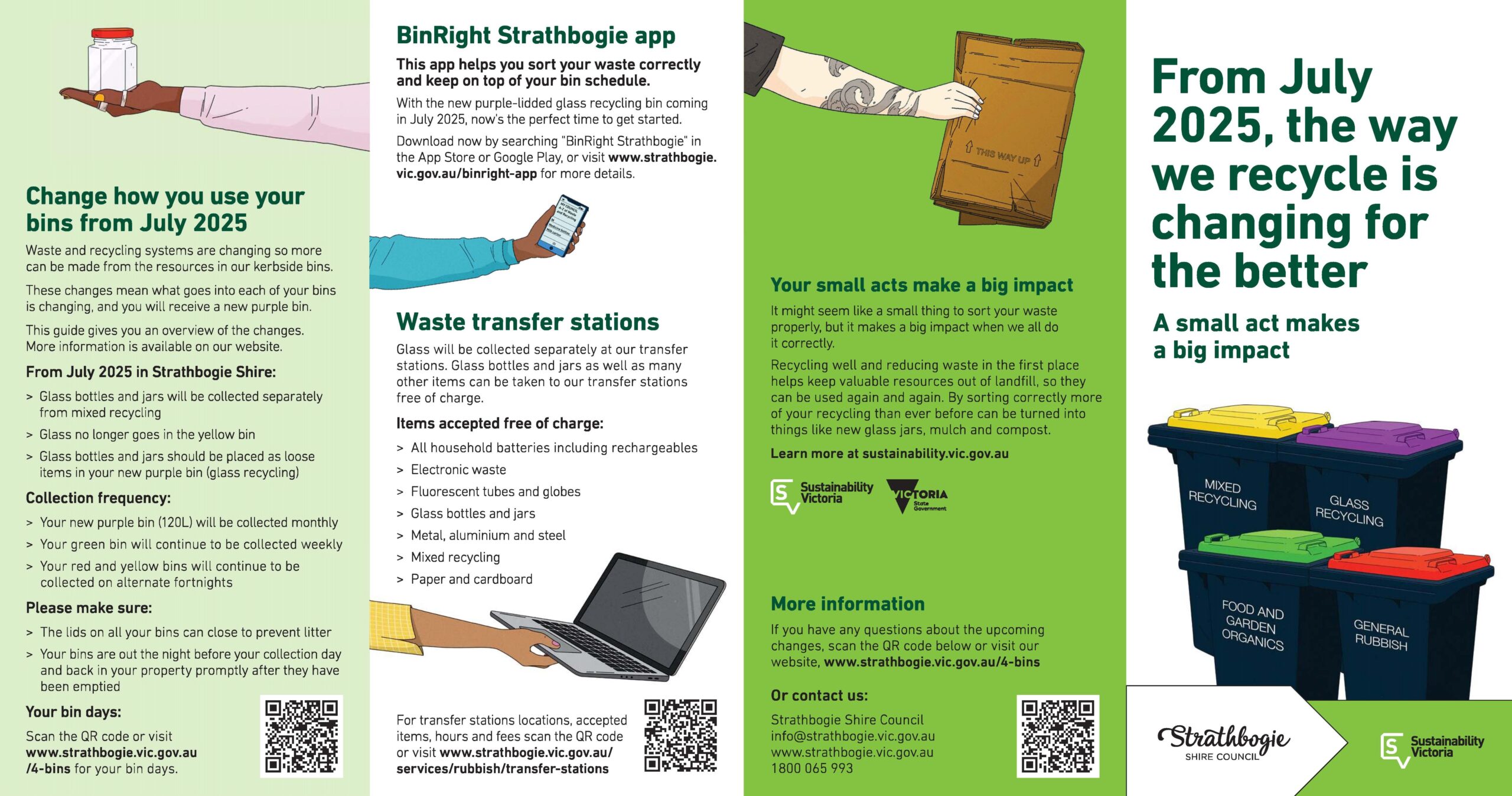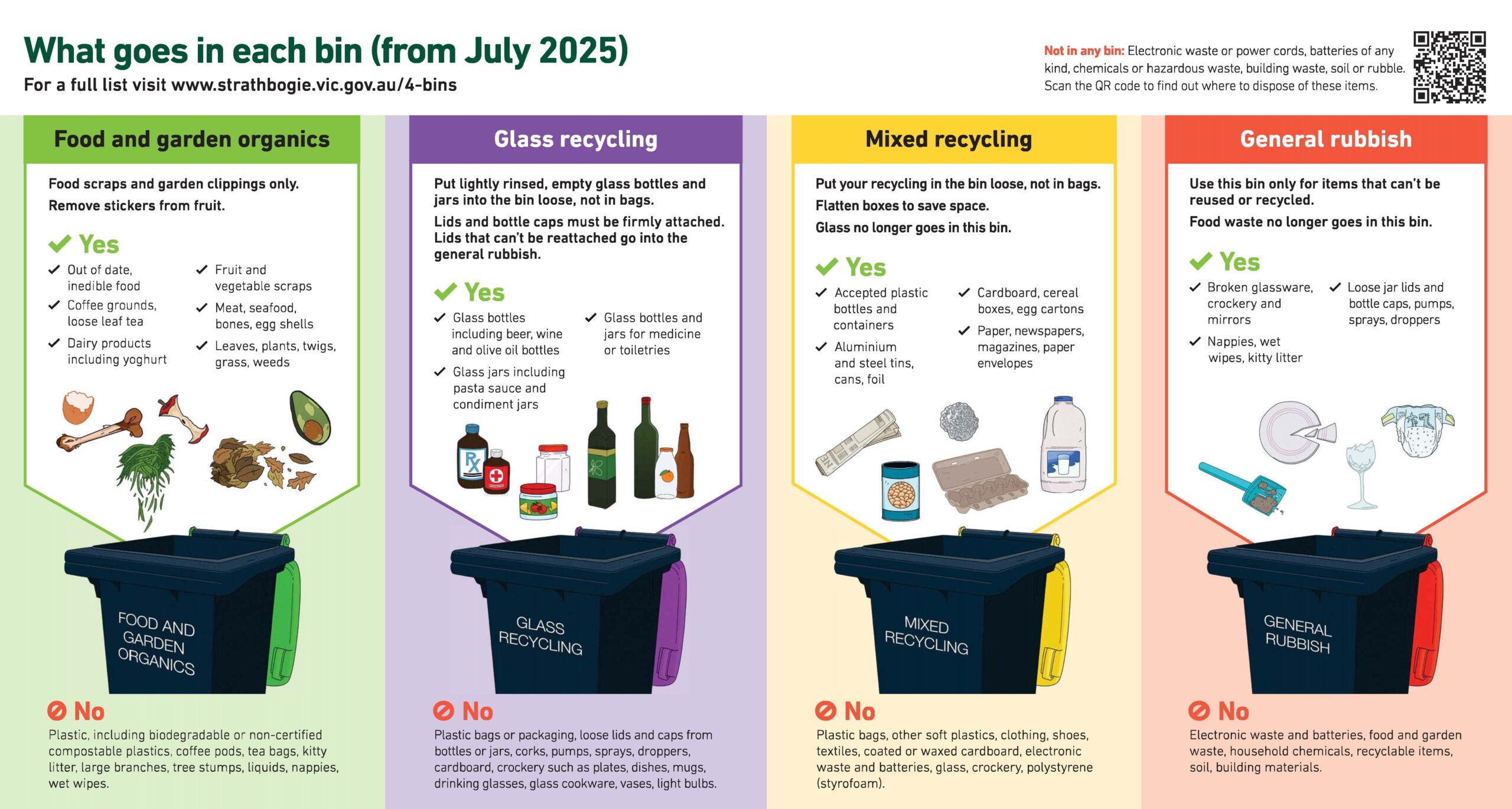What’s on this page?
- View or download our handy Waste Sorting Guide below
- A-Z List of waste
- Where to dispose of tricky items


A-Z List of waste
Where to dispose of tricky items
E-Waste, or electronic waste, contains many potentially hazardous and valuable materials that don’t belong in landfill.
It includes anything powered by a battery or an electrical cord and plug, but does not include whitegoods.
There are dedicated drop-off points at our Transfer Stations.
- Light globes or fluorescent tubes
- Domestic quantities of recyclable items such as glass bottles and jars, aluminium cans, paper, plastic containers, cardboard and steel cans are accepted free of charge at all transfer stations/resource recovery centres For more information about Council’s Transfer Stations, click here.
Green waste may be deposited at Avenel, Euroa, Nagambie and Violet Town Transfer Stations for the standard tipping fee. Domestic quantities of mulched green waste may be taken from these sites free of charge. If mulched green waste is required by ratepayers, it must be self-loaded and is taken at the user’s risk. The quality of the mulch is not guaranteed by Council.
These items are not accepted at Council facilities. Less toxic household items such as paint, household batteries and fluorescent lighting are accepted free of charge at the Shepparton Resource Recovery Centre, 125 Wanganui Rd, Shepparton.
To dispose of toxic household chemicals, visit Sustainability Victoria’s “Detox Your Home” webpage to find collection points and dates for mobile chemical collections
Batteries can cause fires when placed in kerbside bins. Please take all batteries to a designated collection point for recycling.
Accepted items include AA, AAA, C, D, 6V, 9V, button, laptop, power tool and car batteries. These can be dropped off at your local Transfer Station free of charge (note: fees may apply in certain circumstances).
You can also find additional drop-off locations via B-cycle.
For the disposal of asbestos, contact the Environmental Protection Authority on 1300 372 842 or visit http://www.epa.vic.gov.au/
Council facilities can only accept materials potentially containing asbestos (cement sheeting) if the material explicitly states it does not contain asbestos, or, a clearance certificate is provided by a licensed professional.
Whitegoods containing refrigerants
- commonly refrigerators, freezers and air conditioners
- require degassing by a licensed professional.
These items can be taken to the Avenel, Euroa, Nagambie and Violet Town Transfer Stations. A charge applies for the environmental management of materials containing refrigerants. Any prior degassing of materials must be accompanied with a certificate from a licensed professional for this charge to be waived.
Motor oil is defined as combustible engine and gear oils only. Domestic motor oil will be accepted at Euroa, Nagambie and Violet Town Transfer Stations. Only quantities of 20L or less will be accepted.
drumMUSTER is a national program for collecting and recycling empty, cleaned metal and plastic farm chemical containers. All drums must carry the drumMUSTER logo and be clean, dry and free of checmical residue (rust and dye stains are acceptable).
If you need to bring in more than 20 drums at one time, contact Council on 1800 065 993 to arrange a suitable time.